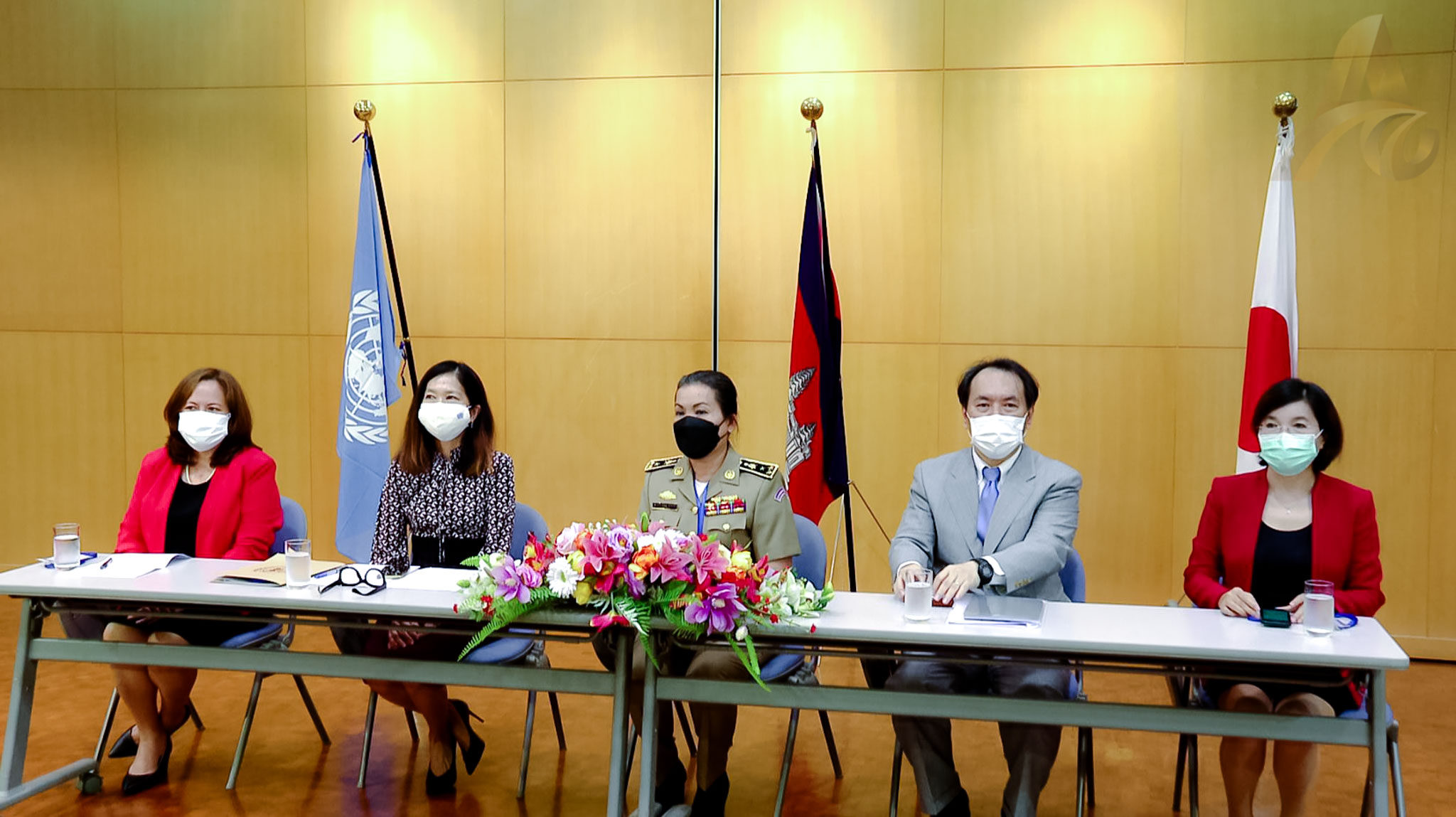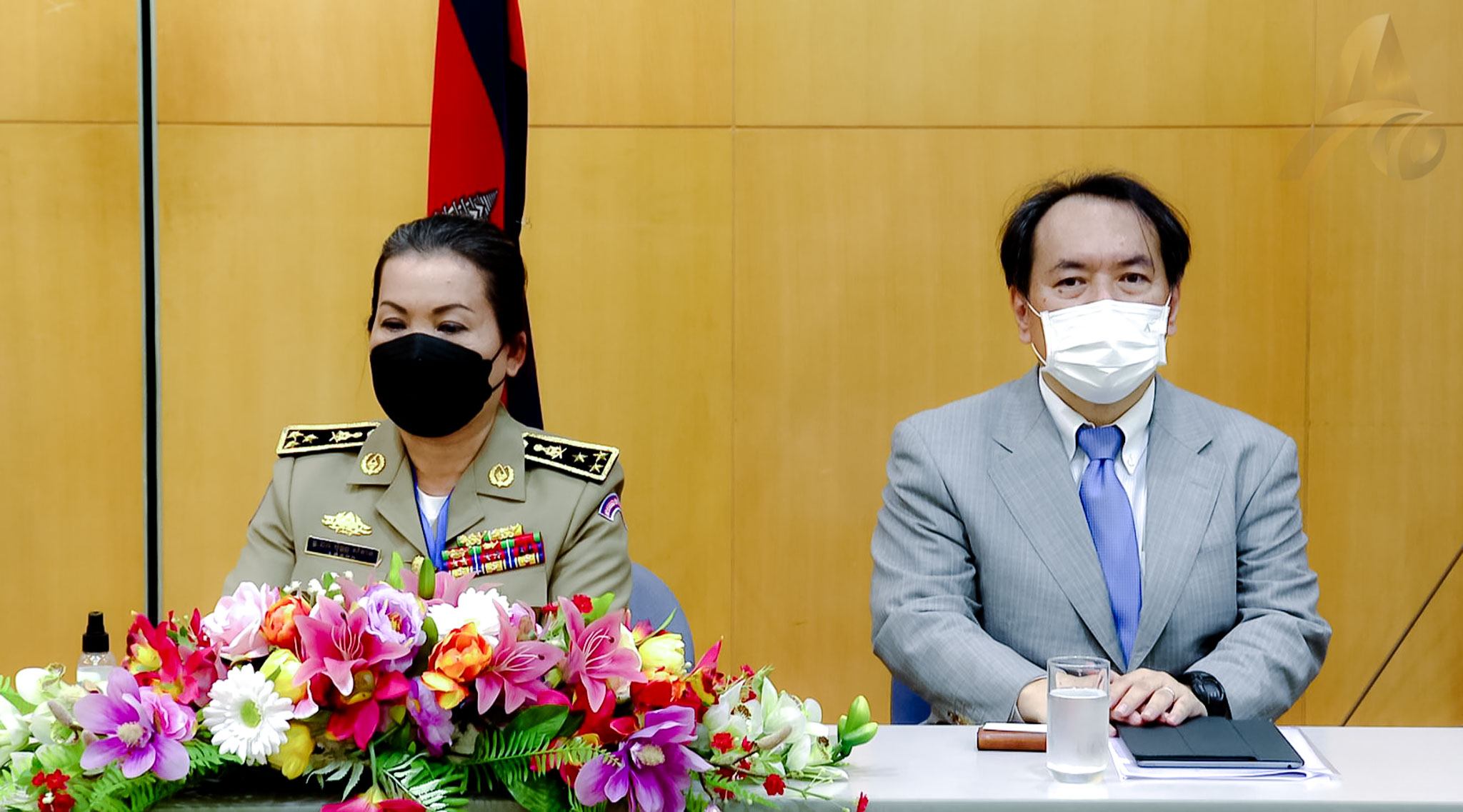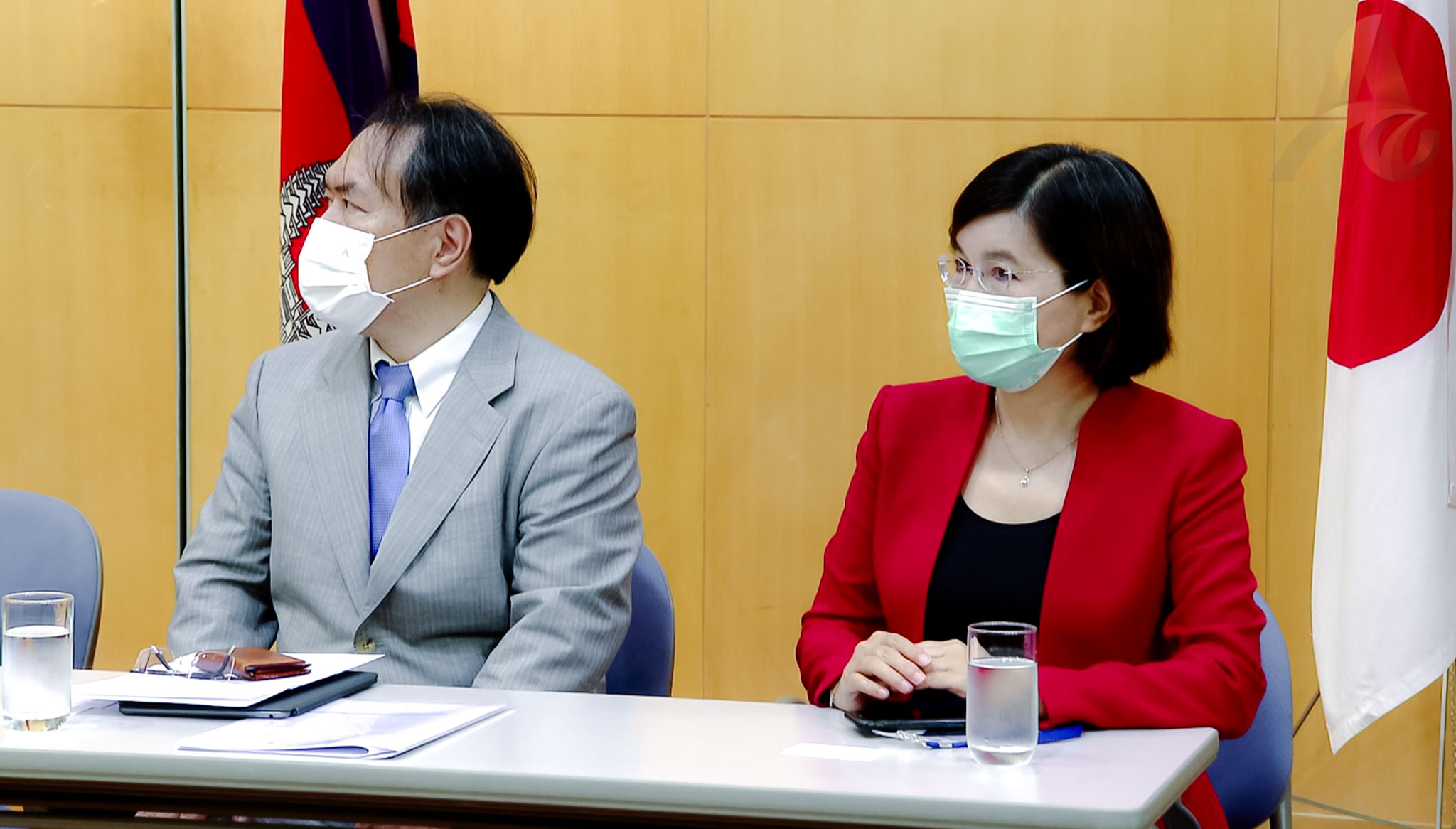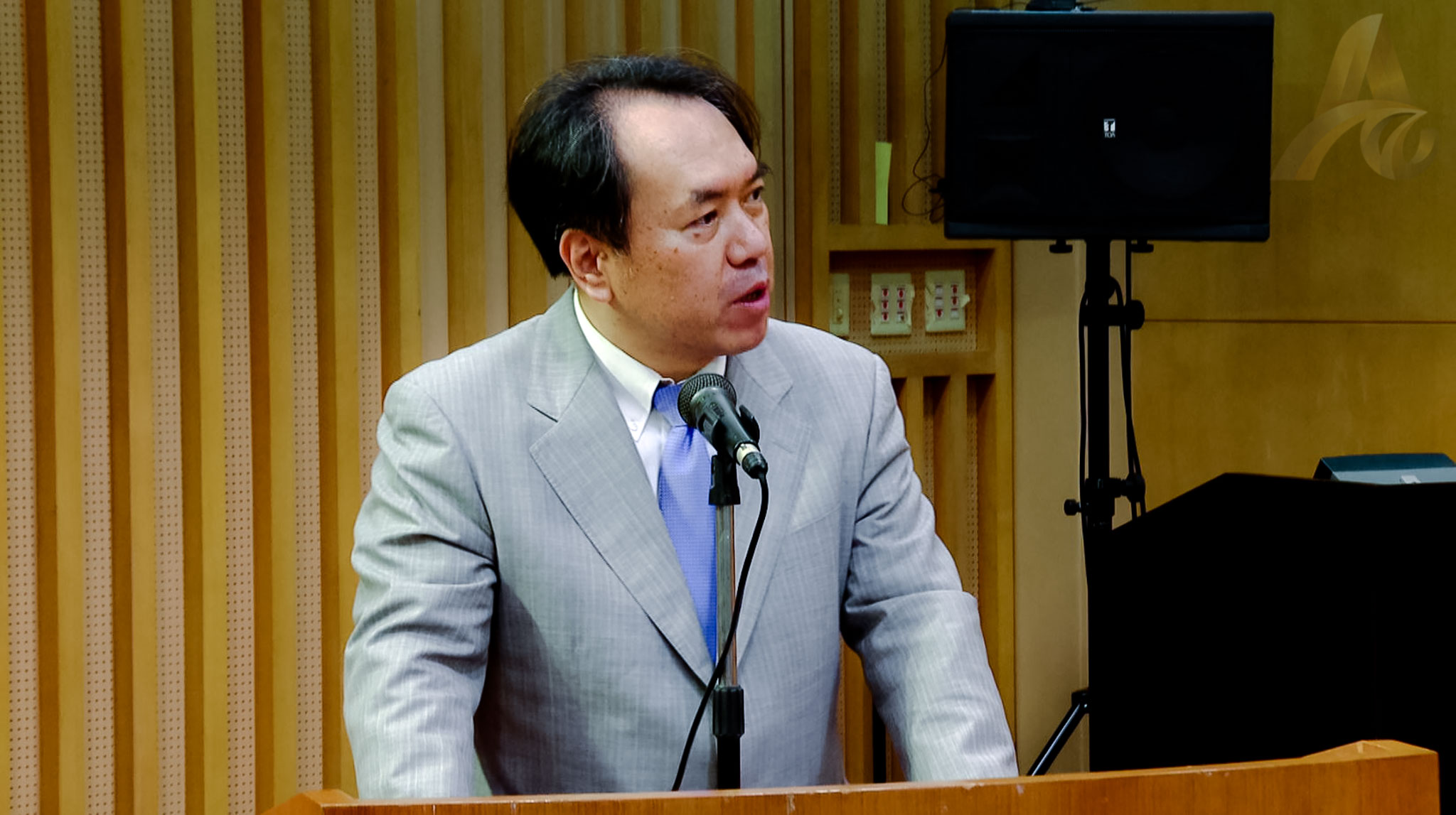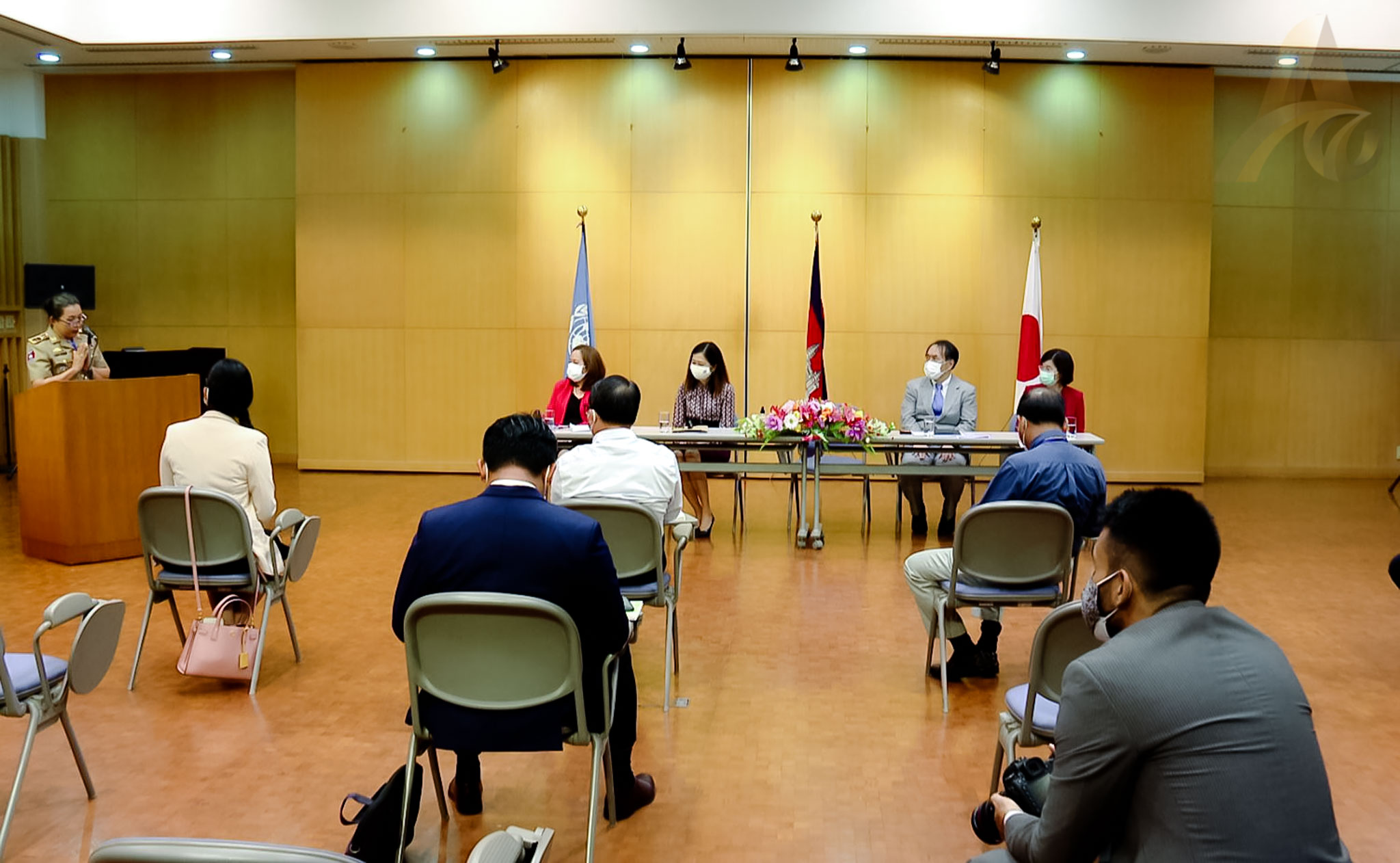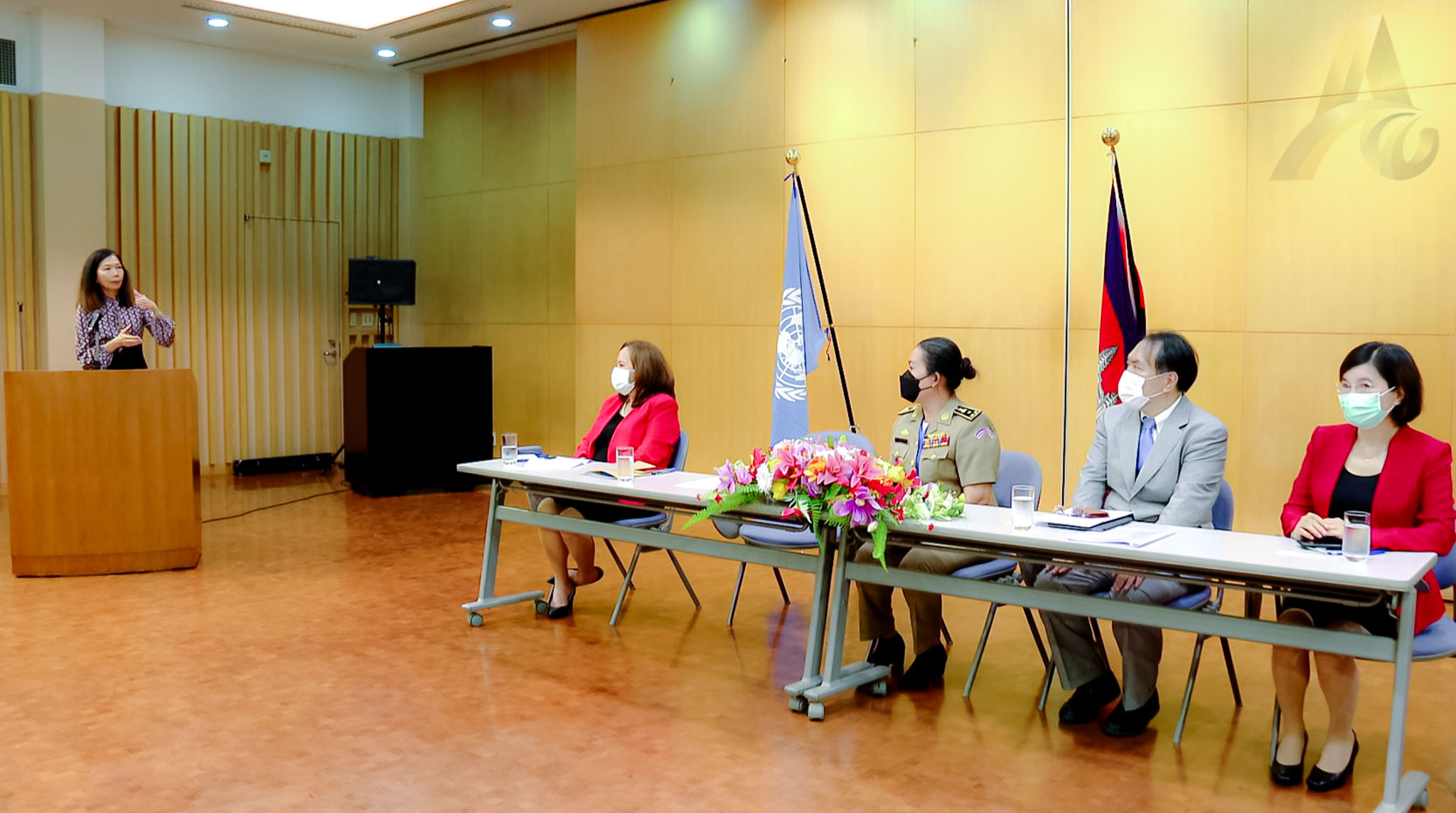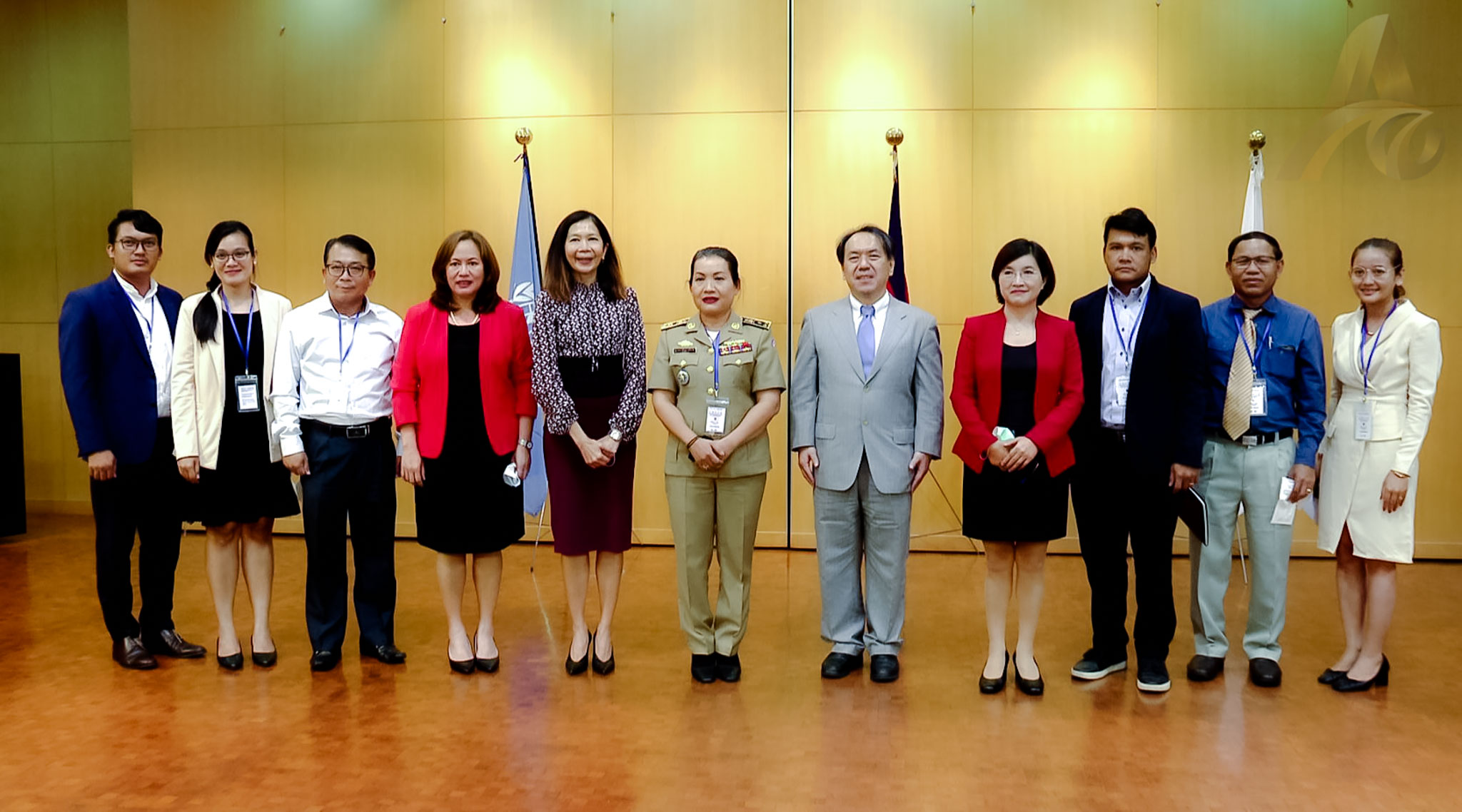PHNOM PENH: The United Nations in Cambodia, with the support of the Government of Japan, has launched a new joint program aimed at supporting the Royal Government of Cambodia in implementing a health compliant border response to limit the spread of Covid-19 variants and meet the immediate needs of returning migrant workers from abroad. The launch ceremony was held on Tuesday morning (10 May) at the Embassy of Japan in Phnom Penh.
Led by four UN agencies, the IOM, UNICEF, UNFPA and WHO, under the leadership of the UN Resident Coordinator, Pauline Tamesis, the joint program will run for 12 months from 31 March 2022, and focus on the provinces of Banteay Meanchey, Oddor Meanchey and Battambang, where the majority of migrants cross the border.
Opening the launch ceremony, the Deputy Chief of Mission of the Embassy of Japan, Mr. Karimata, said that the Japanese Government is committed to supporting the Royal Government of Cambodia in response to the Covid-19 crisis and restoration, and feels confident that Japan’s contribution through IOM will make significant and sustainable impacts, particularly on vulnerable populations, and will accelerate the progress to achieve Sustainable Development Goals (SDGs) 3, 10 and 17, focused on health and wellbeing, reducing inequality and revitalizing global partnership for sustainable development.
The UN Resident Coordinator, Pauline Tamesis, shared her remarks and said the program being launched is built on a previous joint program on a health compliant and human rights approach to border management and prevention of Covid-19 transmission through stronger public health measures along the border. She said this was the starting point for this program, where many lessons were learnt, such as how it is necessary to address an immediate health emergency response, meet the needs of vulnerable returning migrants, and ensure that their health needs and socioeconomic needs are addressed at the same time.
She emphasized that this joint program is a part of the broader effort of the United Nations country team to build back better from the pandemic with human rights at its core, for a more inclusive and sustainable recovery for the Cambodian people. Cambodian returnee migrant workers, especially from Thailand, have been identified as one of the most vulnerable populations to Covid-19, with limited access to testing and treatment, and inability to adhere with public health recommendations due to their living and working conditions.
The UN Resident Coordinator thus emphasized the importance of utilizing a health and human rights’ compliant approach to border management in order to effectively control and manage transmission of the disease within rural communities, while upholding the basic rights of migrants when they cross the border, stay in quarantine facilities or undergo treatment at centers.
The IOM Chief of Mission, Kristin Parco, spoke and said on behalf of the four UN agencies, she would like to say thank you to the Embassy of Japan for hosting the launch ceremony, and she also expressed her sincere appreciation to the Government of Japan for its commitment in supporting the Cambodian people through the Covid-19 pandemic. She further outlined how the joint program will focus on devising local solutions through a community-led approach, and will address the priority needs of returning migrant workers by ensuring the flow of returning migrants at the border is managed using a humanely, dignified and health-compliant approach and return systems are in place for returning migrants that meet their health, well-being and protection needs.
Finally, the Secretary General of the Secretariat of NCCT, Gen. Lieu. Ponn Samkhann, spoke, and thanked the UN agencies and the Government and Embassy of Japan for their cooperation with the Royal Government of Cambodia in addressing the Covid-19 crisis. She also outlined the activities and achievements made by the Royal Government in regard to the country’s Covid-19 response and protection of returning migrant workers.
The launch of the UN Joint Program on the Emergency Health and Socio-Economic Response to Returning Migrants is a UN system-wide response led by the IOM, UNICEF, UNFPA and WHO, supported by the Government of Japan. The program objective will be delivered through two main outcomes, which focus on a humane, dignified and health-compliant approach to border management, and ensuring appropriate quarantine and return systems are in place to meet the health, well-being and protection needs of returning migrants.
